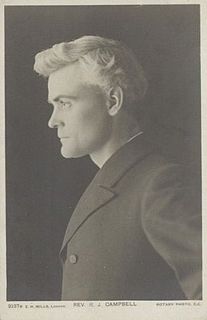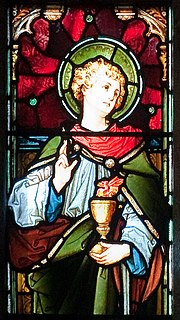A Quote by Anne Rice
Evil is a point of view ... God kills, and so shall we; indiscriminately ... for no creatures under God are as we are, none so like Him as ourselves. God kills indiscriminately and so shall we. For no creatures under God are as we are none so like him as ourselves.
Related Quotes
It is not a terrible thing to a wretched soul, when it shall lie roaring perpetually in the flames of hell, and the God of mercy himself shall laugh at them; when...God shall mock them instead of relieving them; when none in heaven or earth can help them but God, and he shall rejoice over them in their calamity
'Now we are the sons of God'. This is the starting point of adoption. However, 'it does not yet appear what we shall be: but we know that, when He shall appear, we shall be like Him; for we shall see Him as He is' (I Jn. 3:2). This is the perfection of adoption of sons and renewal which God bestowed on us in Christ, and of which John says in his Gospel that, 'Christ gave power to become the sons of God, even to them that believe on His name: which were born, not of blood, nor of the will of the flesh nor of the will of man, but of God' (Jn. 1:12-13).
Detachment from things does not mean setting up a contradiction between 'things' and 'God' as if God were another thing and as if creatures were His rivals. We do not detach ourselves from things in order to attach ourselves to God, but rather we become detached from ourselves in order to see and use all things in and for God.
And how shall I call upon my God, my God and Lord, since, when I call for Him, I shall be calling Him to myself? and what room is there within me, whither my God can come into me? whither can God come into me, God who made heaven and earth? is there, indeed, O Lord my God, aught in me that can contain thee?
God is dead. God remains dead. And we have killed him. How shall we comfort ourselves, the murderers of all murderers? What was holiest and mightiest of all that the world has yet owned has bled to death under our knives: who will wipe this blood off us? What water is there for us to clean ourselves? What festivals of atonement, what sacred games shall we have to invent? Is not the greatness of this deed too great for us? Must we ourselves not become gods simply to appear worthy of it?
When religion has said its last word, there is little that we need other than God Himself. The evil habit of seeking God-and effectively prevents us from finding God in full revelation. In the and lies our great woe. If we omit the and we shall soon find God, and in Him we shall find that for which we have all our lives been secretly longing.
The Apostle John said, " Beloved, now we are the sons of God." He didn't say by and by we are going to become sons of God. He said we are that now, today, this moment.
" Now we are the sons of God, and it doth not yet appear what we shall be but we know that, when he shall appear, we shall be like him; for we shallsee him as he is"
It is no strain of metaphor to say that the love of God and the wrath of God are the same thing, described from opposite points of view. How we shall experience it depends upon the way we shall come up against it: God does not change; it is man's moral state that changes. The wrath of God is a figure of speech to denote God's unchanging opposition to sin; it is His righteous love operating to destroy evil. It is not evil that will have the last word, but good; not sorrow, but joy; not hate, but love.
We have the right to rid our houses of ants; but what we have no right to do is to forget to honor the ant as God made it, out in the place where God made the ant to be. When we meet the ant on the sidewalk, we step over him. He is a creature, like ourselves; not made in the image of God, it is true, but equal with man as far as creation is concerned. The ant and the man are both creatures.
So long as we judge ourselves by human comparisons, there is plenty of room for self-satisfaction, and self-satisfaction kills faith, for faith is born of the sense of need. But when we compare ourselves with Jesus Christ, and through Him, with God, we are humbled to the dust, and then faith is born, for there is nothing left to do but to trust to the mercy of God.





































